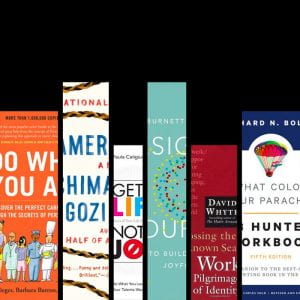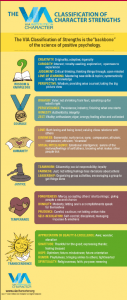Career Transitions
Dear Students and Alumni:
It is never too late to re-invent yourself. As one of our favorite career experts, Barbara Sher, once noted, “You can learn new things at any time in your life if you are willing to be a beginner. If you actually learn to like being a beginner, the whole world opens up for you.”
The good news is that even when you learn a brand new set of skills or explore a new industry, you still bring your existing skills and knowledge with you. In this sense, making a career transition is an opportunity to build on your strengths while creating new ones.
We hope that the resources here will both inspire and challenge you to pursue new dreams. Career Design and Development is here to support you every step of the way.
Suggested Reading
6 Books to Read If You Need a Career Change
Tips for a Successful Mid-Career Change
10 Steps to a Successful Career Change
Resume Writing Tips for Changing Careers
When the Winds Shift: Navigating Career Velocity, Part 1
When the Winds Shift: Navigating Career Velocity, Part 2
Reinventing Your Career in the Time of Coronavirus
Helpful Career Transition Resources
Bring your character strengths to life & live more fully! When you discover your greatest strengths, you learn to use them to handle stress and life challenges, become happier, and develop relationships with those who matter most to you. What are your strengths?
Take the free VIA Strengths Survey today and check out the VIA Classification of Character Strengths (click on image above to read more).
Your skills describe what you like to do and what you are good at. You develop skills by training and experience that improve your ability to do tasks. Being able to identify and describe your skills allows you to answer key questions at job interviews such as What can you do for my organization? and What problems can you solve? Use the Career OneStop Skills Matcher to help you identify your skills.
An interest assessment can help you identify careers that meet your interests. Interest assessments usually ask you a series of questions about what you like and don’t like to do. Then they match your likes and dislikes to careers. When you choose a career that matches your overall interests, you’re more likely to enjoy your job. Use the Career OneStop Interest Assessment to help you identify your interests.
Values are your beliefs about what is important or desirable. When your values line up with how you live and work, you tend to feel more satisfied and confident. Living or working in ways that contradict your values can lead to dissatisfaction, confusion, and discouragement. So there is good reason to clarify your values, and seek to match your work to them. Use Career OneStop’s Values Matcher to help you learn more about your values.




